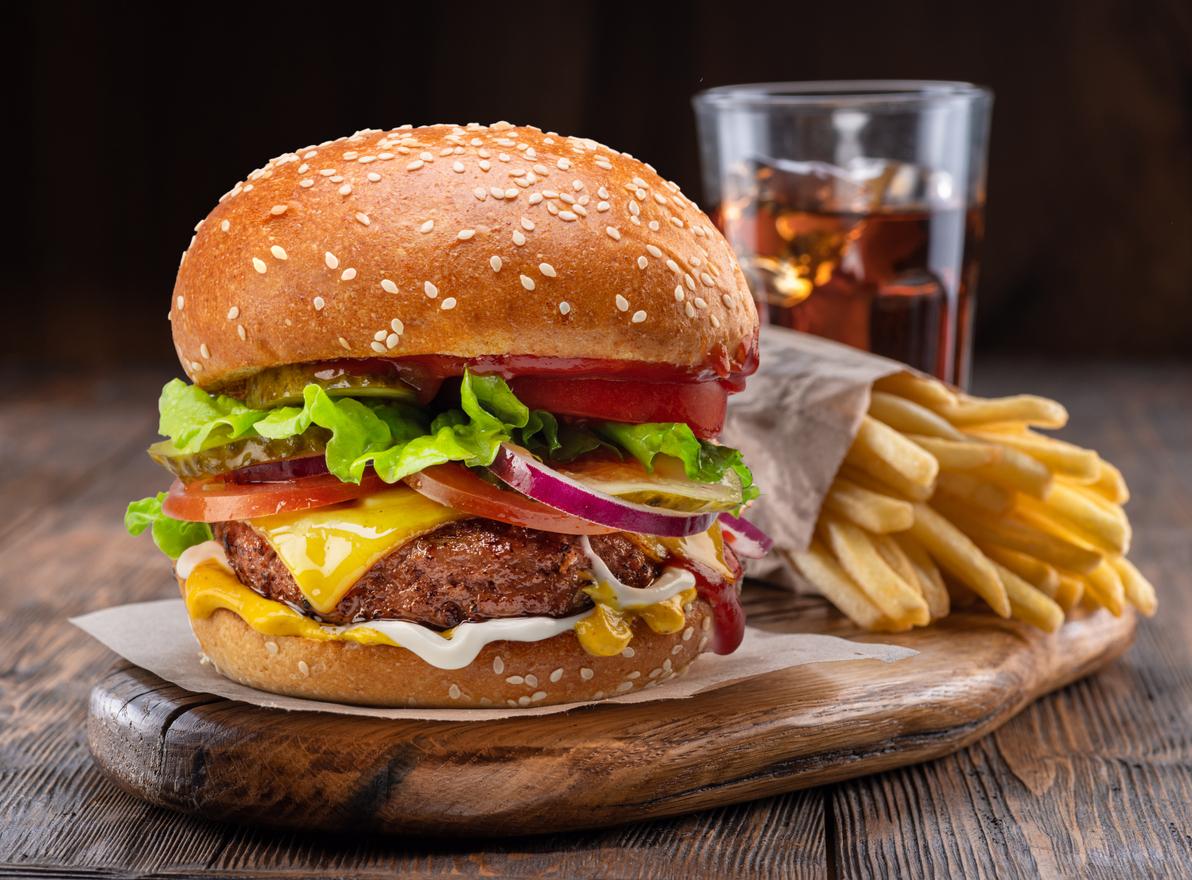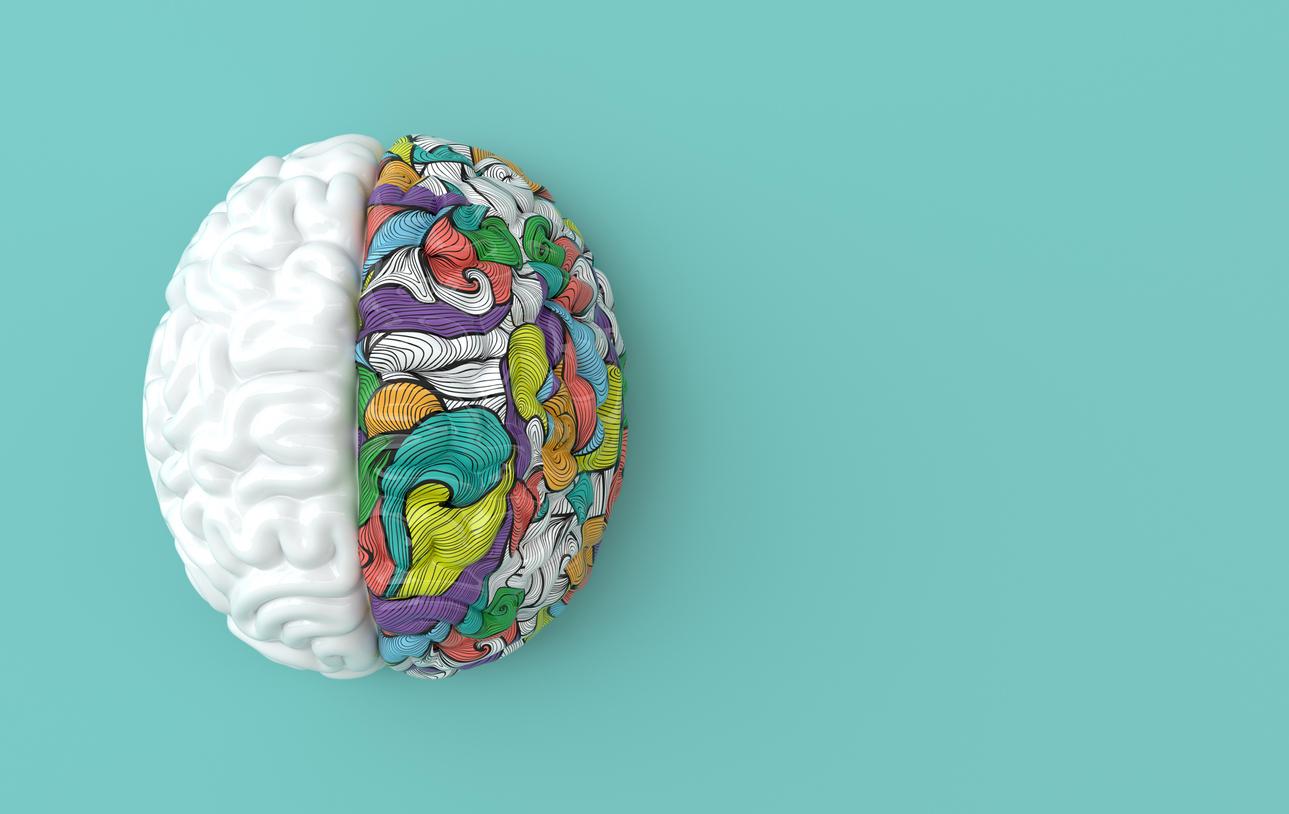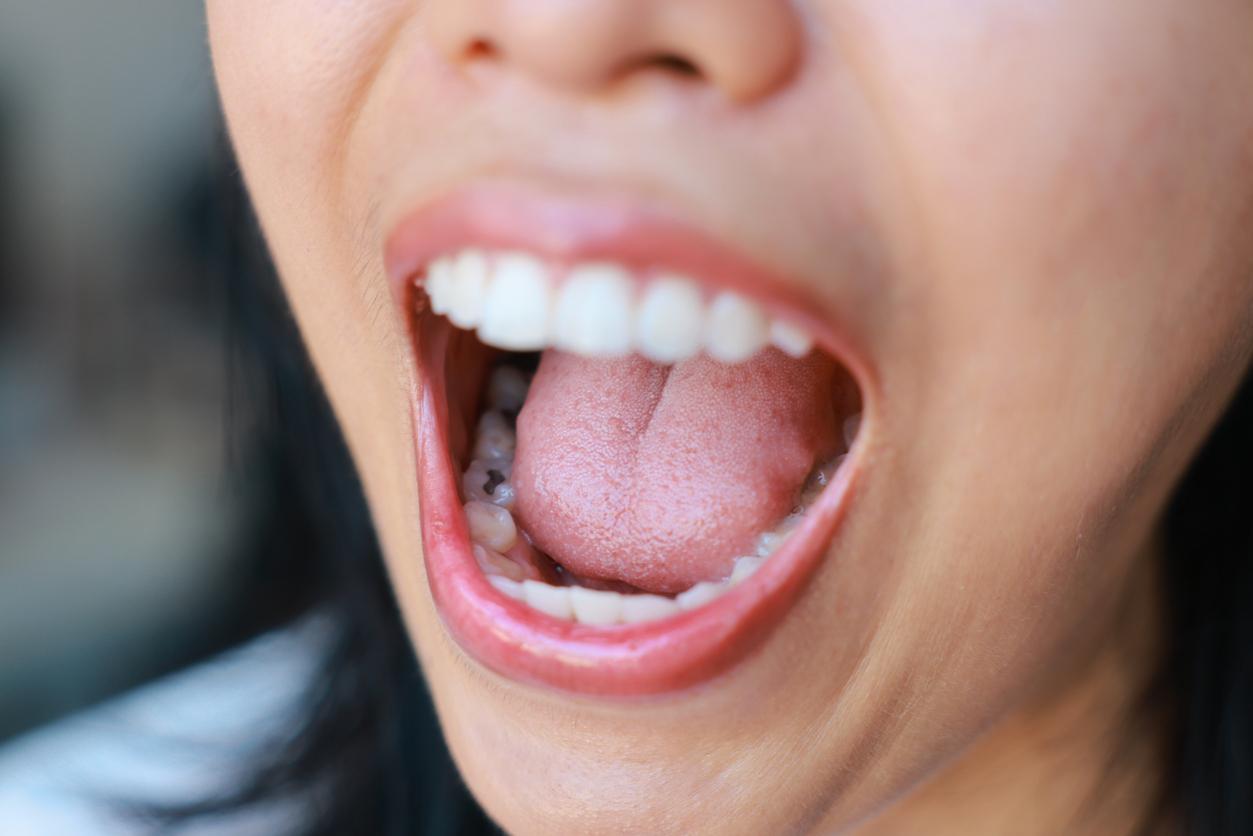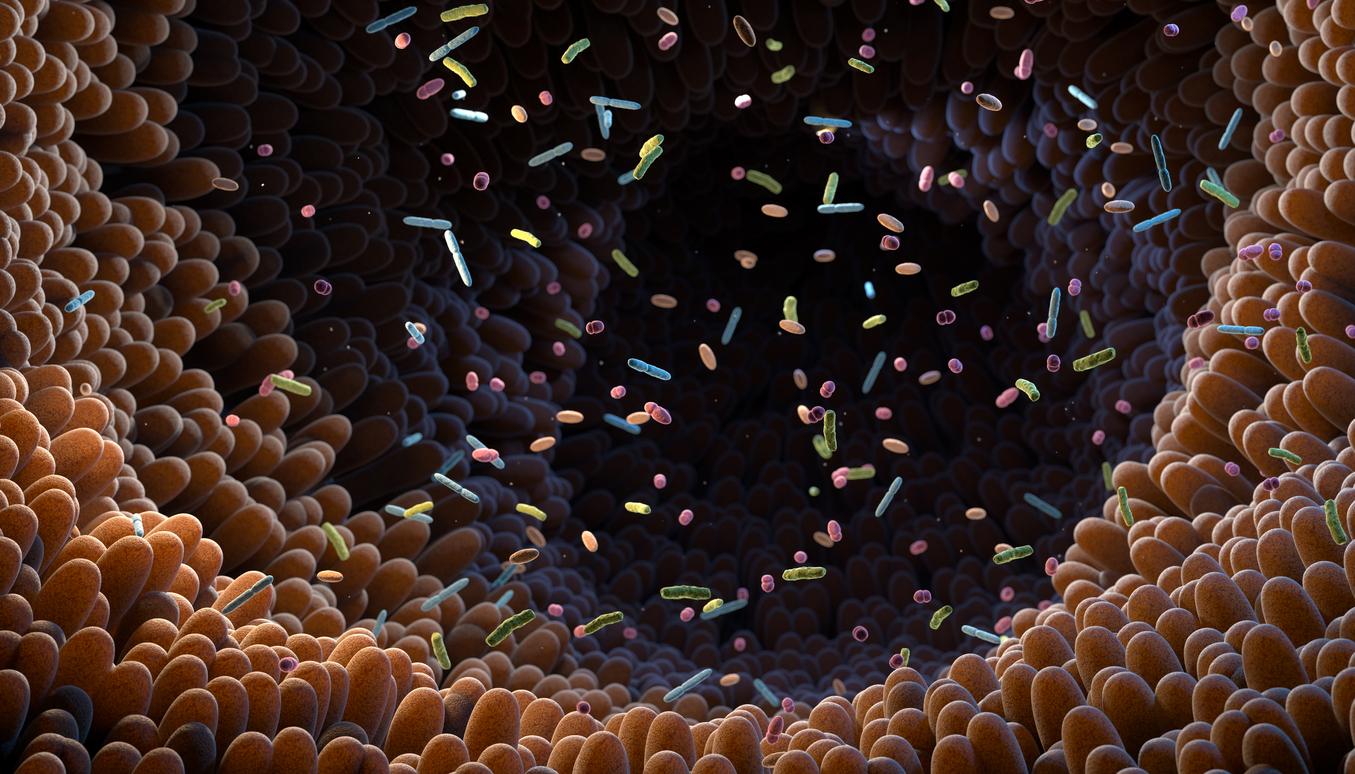A diet high in fat disrupts the gut microbiota. This affects chemicals in the brain and triggers anxiety.

- High consumption of saturated fats disrupts the intestinal microbiota.
- This activates genes, linked to serotonin, and can trigger anxiety.
- Bad bacteria could activate these genes by passing through the vagus nerve, which carries them to the brain.
If you are stressed, it is better to eat a balanced diet. According to a study, a diet high in fat increases anxiety. In Biological Researchthe authors, scientists from the University of Colorado Boulder in the United States and the Federal University of Ouro Preto in Brazil, demonstrate that fatty foods have an impact on the intestinal microbiota but also on the brain.
Rat study to understand links between fatty diet and anxiety
In previous work, the team found that rats fed a diet high in saturated fat showed increased neuroinflammation and anxiety-like behaviors. This time, they sought to explain the link between fat and anxiety. This new experiment was also conducted on laboratory rats. The animals were divided into two groups: one was fed a standard diet, consisting of about 11% fat, for nine weeks, and the other was given a high-fat diet, consisting of 45% fat, mostly saturated fat from animal products.
High-fat diet: a reduction in the diversity of the intestinal microbiota
Throughout the study, the researchers collected fecal samples. This allowed them to study changes in the animals’ microbiota, i.e. the bacteria present in their intestines. After nine weeks, the animals underwent behavioral tests.”Compared to the control group, the high-fat diet group, unsurprisingly, gained weight, observes Christopher Lowry, lead author of the study. But the animals also had a lower diversity of gut bacteria. Generally speaking, greater bacterial diversity is associated with better health.”
The scientists also found that the high-fat diet group had higher expression of three genes (tph2, htr1a, and slc6a4) involved in the production and signaling of the neurotransmitter serotonin, particularly in a region of the brainstem associated with stress and anxiety. Serotonin is often touted as the happy hormone, but the researchers point out that certain serotonin neurons can trigger anxiety in animals. In humans, increased expression of tph2, or tryptophan hydroxylase, has been linked to mood disorders and suicide risk.

How can we explain the links between the intestinal microbiota and the brain?
“To think that a simple high-fat diet could alter the expression of these genes in the brain is extraordinary.“, says Christopher Lowry. The team cannot clearly understand how the disruption of the microbiota changes brain chemicals, but the American scientist has a clue.An unhealthy microbiome breaks down the gut lining, allowing bacteria to slip into the body’s circulation and communicate with the brain via the vagus nerve, a pathway from the gastrointestinal tract to the brain.”he supposes.
Christopher Lowry, however, reminds us that not all fats are bad.Healthy fats like those found in fish, olive oil, nuts and seeds can be anti-inflammatory and good for the brain“, he says. On the other hand, to avoid anxiety, you should limit foods rich in saturated fats.
















